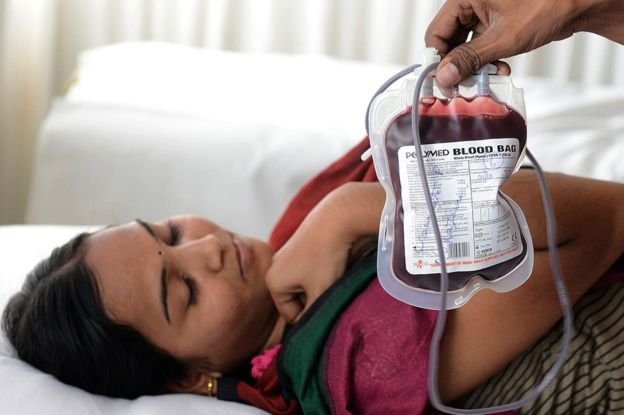|
Though scientific advancements have created an aura that heart surgery procedures are simple, in reality they are not! Almost half of all heart surgery patients receive blood transfusions and surgeons and anesthesiologists are till now, doubtful of the level up to which they can allow blood oxygen to drop to before giving transfusions. A recent study finds that there might be chances of reducing the number of patients who may be exposed to the potential dangers of blood transfusions.
Blood Cell Transfusions Hemoglobin levels that indicate the quantity of oxygen that can be carried in the blood are continuously monitored during heart surgery and when there is a drop in these levels, the patient may receive red blood cell transfusions. The disturbing question here is how low to let the hemoglobin levels drop before going for a transfusion. The study involved around 5,000 patients in 19 countries around the age of 72 out of which 2/3rd were men. The group was split into two and blood transfusions were given either using liberal strategies (giving transfusions sooner thereby increasing the risk of inflammation and infection) or restrictive strategies (delaying transfusions but increasing risk by letting oxygen levels drop too low). The two processes generated almost the same result and the cases of heart attack, stroke, new kidney failure or death was similar among the two groups. This suggests that the restrictive waiting approach to blood transfusion can result in less blood being taken from the blood supply leading to less expense being incurred. Read more on heart attack, stroke and ways to curb these diseases with healthy foods at www.firsteatright.com. Hence, fewer blood transfusions can be done during heart surgeries maintaining patient safety and success rates all the while along with reduced costs and decreased blood usage. Apart from this, several other factors have decreased the need for a blood transfusion. Conserving blood from the patient and re-using it, the complications involved during and after the transfusion process and directed donation where the person relies on his/her own blood during surgery are some methods to deter away from the dangerous transfusion process. Comments are closed.
|
AVOID FRAUD. EAT SMART.+91 7846 800 800
AuthorDietitian & Nutritionist Dr. Nafeesa Imteyaz. Archives
July 2024
Categories
All
Dr. Nafeesa's Blog @blogspot |
- Home
- Written Testimonials
- Consult
- Clinics
- Blogs
-
Diet & Nutrition
- Diabetes Reversal
- IVF IUI not needed for PCOS PCOD Infertility
-
Medical Nutrition
>
-
Disease & Conditions
>
- Infertility | PCOS
- Diabetes Mellitus
- Cholesterol
- Hypothyroid
- Kidney Problems
- Hypertension
- Cardiovascular Diseases
- Liver Diseases
- Gastro intestinal disorder
- Cancer
- Metabolic Disorders
- Orthopedic Disorders
- Eating Disorders
- Dietary Recall
- Weight Record Filled By Clients
- Online Payment Transaction Details
- Online Clients Weight Check Form
- Our Program Package Service Charges
- Weight Record 2017 Clients
- Measurements sent by Clients
- Terms & Conditions Of Payment
- Thanks. Your Form is Submitted
- Video Testimonials
- Lifestyle & Wellness
- Lifestyle & Wellness Blog
- Allergy & Intolerance
- Weight Loss / Gain
- Weight Loss / Slimming Blog
-
Disease & Conditions
>
- Life Cycle Nutrition >
- Sports Nutrition >
- Integrity in Nutrition
- Knowledge Centre
© COPYRIGHT 2022. ALL RIGHTS RESERVED. FRST HEALTHCARE PVT LTD.
Dr. Nafeesa Imteyaz of First Eat Right clinic, is the Best Dietitian Nutritionist in Bangalore. Best Dietitian Nutritionist in Pune. Best Dietitian Nutritionist in Hyderabad. Best Dietitian Nutritionist in Chennai. Best Dietitian Nutritionist in Mumbai. Best Dietitian Nutritionist in Delhi. Best Dietitian Nutritionist in Kolkata.


